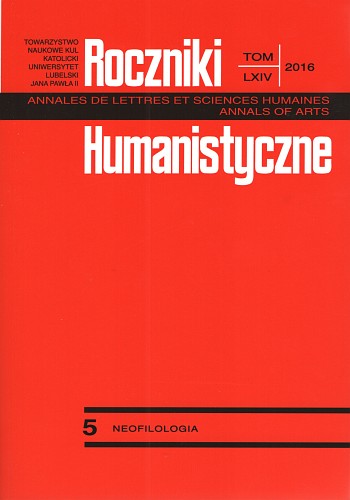Niemieckie oświecenie a wiara we wszechmoc rozumu ludzkiego
The German Enlightenment vs. the Faith in the Omnipotence of Human Reasoning
Author(s): Ewa GrzesiukSubject(s): Language and Literature Studies, Studies of Literature, German Literature
Published by: Towarzystwo Naukowe KUL & Katolicki Uniwersytet Lubelski Jana Pawła II
Keywords: German Enlightenment; malum metaphysicum; a myth of the faith in the omnipotence of human reasoning; Georg Wilhelm Leibniz; Christian Thomasius; Christian Wolff; Christoph Gottsched
Summary/Abstract: Based on the texts of philosophers (such as Georg Wilhelm Leibniz, Christian Thomasius, Christian Wolff, Alexander Gottlieb Baumgarten, Georg Friedrich Meier), the author has analyzed the trend that make up the notion of the Enlightenment: the enlightenment paradigm gnoseology imperfections of human cognitive powers that Leibniz called as malum metaphysicum (Théodicée). This assumption contradicts the currently widespread thesis-myth of the faith of the Enlightenment in the omnipotence of human reasoning.This paradigm of Leibniz takes Wolff, his students Johann Christoph Gottsched and A.G. Baumgarten, the founder of aesthetics. Awareness of the imperfections of a human cognitive apparatus on the one hand and the belief in the possibility of its improvement on the other hand has allowed Leibniz to formulate the postulate to create a “logic of sense cognition”, science analogous to a classical logic. This postulate is repeated by Wolff and his students, but only Baumgarten forms the basis of aesthetics, that is called gnoseologia inferior and ars pulchre cogitandi. In the opinion of the author, aesthetics is the only form available to the human being to overcome the metaphysical evil.
Journal: Roczniki Humanistyczne
- Issue Year: 64/2016
- Issue No: 5
- Page Range: 125-144
- Page Count: 20
- Language: Polish

